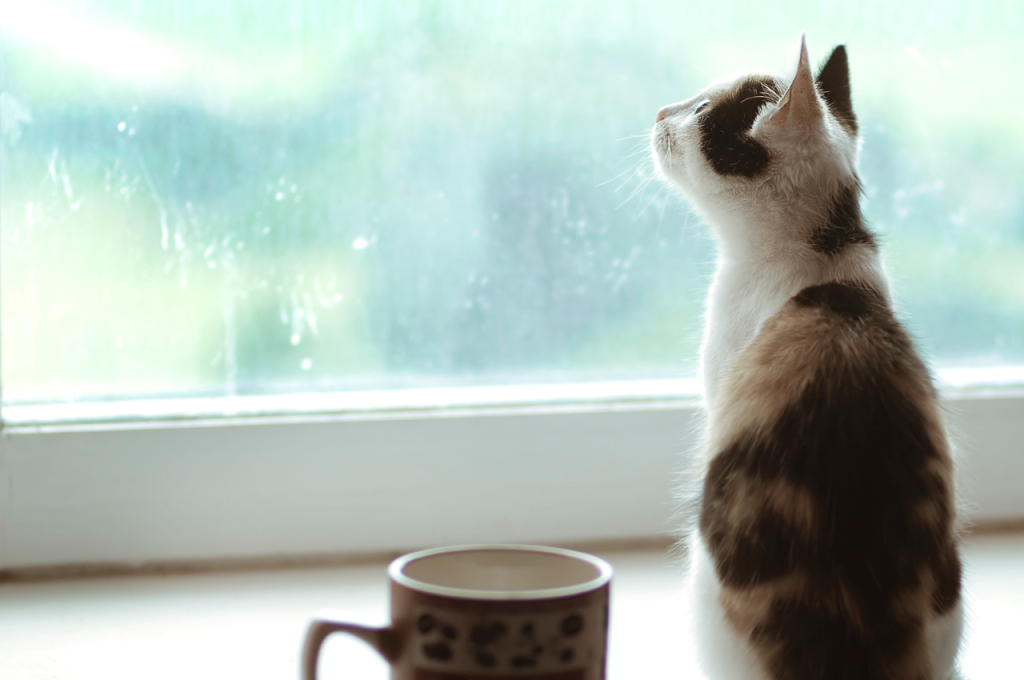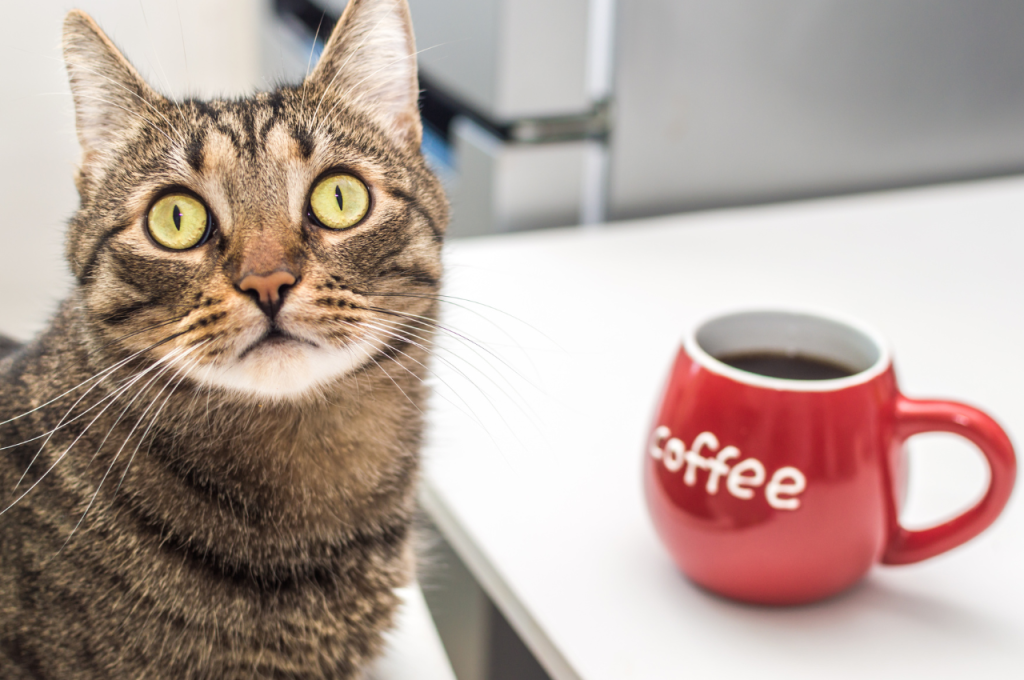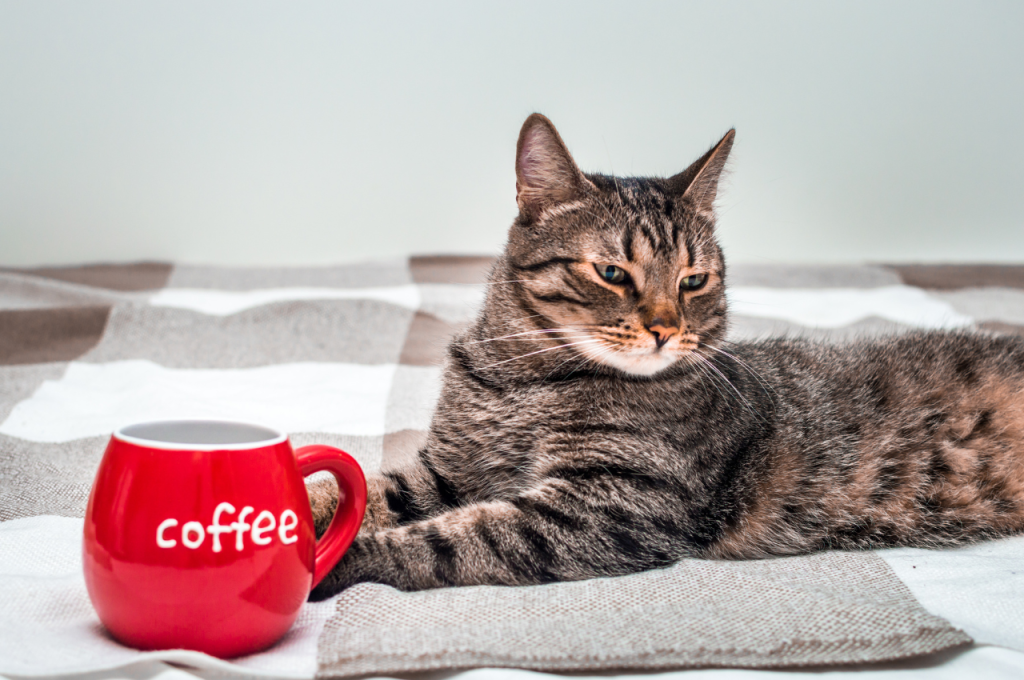Coffee is harmful to cats due to its caffeine content, which can be toxic to them. It can lead to various health issues, including restlessness, rapid heart rate, seizures, and even death.
As natural carnivores, cats are not equipped to metabolize caffeine effectively, making it essential to keep them away from all coffee products. Ensuring that coffee is stored securely and kept out of reach of curious felines is crucial for their well-being.
By being vigilant and knowledgeable about the dangers of coffee, cat owners can help protect their pets from potential harm.
Understanding Caffeine Toxicity
Caffeine toxicity can have severe consequences on cats, posing a serious risk to their health and well-being.

The Impact on Cats’ Bodies
Caffeine is rapidly absorbed into a cat’s bloodstream, affecting their central nervous system, heart, and muscles.
Recognizing The Signs of Poisoning
- Symptoms of caffeine poisoning in cats include restlessness, tremors, elevated heart rate, and seizures.
- Immediate veterinary care is crucial if poisoning is suspected to prevent severe complications.
Exploring The Risks
Delves into the potential dangers of coffee consumption for cats, highlighting their sensitivity to caffeine and the associated health risks.
Long-term Health Implications for Cats
Coffee can have long-term health repercussions for cats due to their inability to metabolize caffeine efficiently.
Potential Fatal Consequences
Caffeine poisoning in cats can lead to fatal outcomes including seizures, rapid heart rate, and even death.
Coffee Alternatives for Cat Owners
As a responsible cat owner, it’s important to be mindful of the potential harm that coffee can pose to your feline friend. However, there are plenty of safe and cat-friendly alternatives to enjoy without putting your pet at risk.
Safe and Cat-friendly Options
When it comes to finding alternatives to coffee that are safe for cats, there are plenty of options to consider. Here are some popular choices:
- Brewing herbal teas like chamomile or catnip
- Exploring caffeine-free coffee substitutes such as barley coffee or chicory coffee
- Indulging in decaffeinated beverages like herbal coffee alternatives
By incorporating these cat-friendly options into your routine, you can still enjoy your daily cup of warmth without jeopardizing your furry companion’s health.
Creating A Feline-friendly Environment
As a cat owner, it’s important to consider the overall environment and ensure it’s cat-friendly. Creating a cat-friendly space involves more than just replacing coffee with suitable alternatives. It’s about fostering a harmonious environment for your feline companion. This can involve providing plenty of enrichment opportunities such as toys, scratching posts, and comfortable resting spots. Additionally, ensuring your cat has access to fresh water and nutritious food will contribute to a content and healthy feline.
How to Seek Help
Wondering if coffee is safe for your cat? Seeking help from a vet is crucial to understanding the potential harm caffeine may pose to your feline friend. Expert advice can provide clarity on the risks and necessary precautions to keep your pet safe from coffee consumption.

Coffee is a popular beverage enjoyed by millions of people around the world. But what about cats? While caffeine can provide a jolt of energy for humans, it can have very different effects on our feline friends. Ingesting coffee or any caffeinated products can be harmful to cats, causing symptoms ranging from restlessness and increased heart rate to more severe conditions like tremors and seizures. If you suspect your cat has consumed coffee or exhibited any concerning symptoms, it’s important to seek help immediately. Here are some steps you can take to ensure your cat’s well-being.
Emergency Measures
If you catch your cat in the act of drinking coffee or suspect they have consumed a significant amount, quick action is necessary. Follow these emergency measures to minimize the potential harm:
- Remove any remaining coffee or coffee grounds from your cat’s reach.
- Immediately take away their access to any other caffeinated products in the area.
- Do not induce vomiting unless specifically instructed to do so by a veterinarian.
Consulting A Veterinarian
The best course of action when you suspect your cat has consumed coffee is to consult a veterinarian. They are trained medical professionals who can provide the necessary guidance and treatment options specific to your cat’s situation. Some steps to take when seeking veterinary help include:
- Call the vet: Contact your veterinarian immediately to explain the situation. Describe any observed symptoms and follow their advice for the next steps.
- Follow their instructions: The veterinarian may ask you to bring your cat into the clinic or provide further advice based on the severity of the symptoms. It’s crucial to follow their instructions carefully.
- Document the incident: Provide any relevant information to the veterinarian, including the approximate amount of coffee consumed, the time of ingestion, and any observed symptoms.
- Be prepared for examination: If your veterinarian requires an examination, be prepared to bring your cat to the clinic promptly. Follow any pre-visit instructions they provide.
Remember, rapid action is essential when it comes to potential coffee ingestion in cats. By following the emergency measures and consulting a veterinarian, you can help ensure your cat receives the necessary care and treatment promptly.
Raising Awareness
The well-being of our feline friends should always be a top priority. As responsible cat owners, we must educate ourselves and others about potential hazards in our cats’ environments. One common question that often arises is whether coffee is harmful to cats. Raising awareness about this issue is important to ensure the health and safety of our beloved pets.
Educating Others
It is vital to spread accurate information and raise awareness about the potential dangers of coffee for cats. Many people may not be aware that coffee contains a substance called caffeine, which can be toxic to our feline companions. By educating others, we can help prevent accidental ingestion and minimize the risk of harm to our cats.
When discussing the effects of coffee on cats, it is important to highlight the differences between how humans and cats metabolize caffeine. While humans can handle moderate amounts of caffeine, caffeine in coffee is highly toxic to cats. Their bodies metabolize caffeine at a much slower rate, making it much more difficult for them to process and eliminate it from their system.
Caffeine can have various negative effects on cats, including elevated heart rate, increased blood pressure, restlessness, tremors, and unsteady movements. In severe cases, it can even lead to heart palpitations, seizures, or fatalities. Hence, it is crucial to prevent any access to coffee or any caffeinated products to ensure the well-being of our feline friends.
Promoting Responsible Pet Care
As responsible pet owners, promoting responsible pet care goes hand in hand with raising awareness. It is essential to create a safe environment for our cats by keeping coffee beans, coffee grounds, and any caffeinated beverages out of their reach. Additionally, it is equally crucial to inform visitors, friends, and family members about the risks associated with coffee consumption and remind them to be cautious when around cats.

It is also important to remember that coffee is not the only source of caffeine. Other products such as energy drinks, chocolate, and tea also contain caffeine and should be kept away from cats. By promoting responsible pet care, we can help prevent accidental ingestion and minimize potential harm to our furry companions.
In summary, raising awareness about the potential dangers of coffee for cats is crucial. Educating others about the toxicity of caffeine for cats and promoting responsible pet care can help ensure the well-being and safety of our feline friends. By taking proactive measures and spreading accurate information, we can protect our cats from the detrimental effects of coffee and caffeine ingestion.
Frequently Asked Questions On Is Coffee Harmful To Cats?
Certainly! Here’s a FAQ section for whether is coffee harmful to cats. Unveiling the Hidden Dangers:
Q. Is coffee toxic to cats?
Coffee is toxic to cats because it contains caffeine, which can be harmful to their nervous system. Even a small amount of coffee can cause symptoms like restlessness, rapid breathing, increased heart rate, tremors, and in severe cases, it can lead to seizures and even death.
It’s best to keep coffee away from cats at all times.
Q. Can cats drink decaffeinated coffee?
While decaffeinated coffee contains less caffeine than regular coffee, it is still not safe for cats to consume. Even small amounts of caffeine can have negative effects on their health. It’s best to stick to providing cats with water or specially formulated cat-friendly beverages.
Q. Is there any safe alternative to coffee for cats?
Yes, there are safe alternatives to coffee for cats. Catnip tea, cat-friendly herbal teas, and specially formulated cat-friendly beverages can provide cats with a similar sensory experience without the harmful effects of caffeine. These alternatives are a safer option for cats to enjoy without risking their health.
Conclusion
Coffee is harmful to cats due to its caffeine content. With potential risks of toxicity, it’s important to keep coffee and related products away from your feline friends. While occasional exposure may not cause immediate harm, it’s crucial to prioritize your cat’s health by preventing any consumption of coffee.
Always consult a veterinarian for further guidance.
